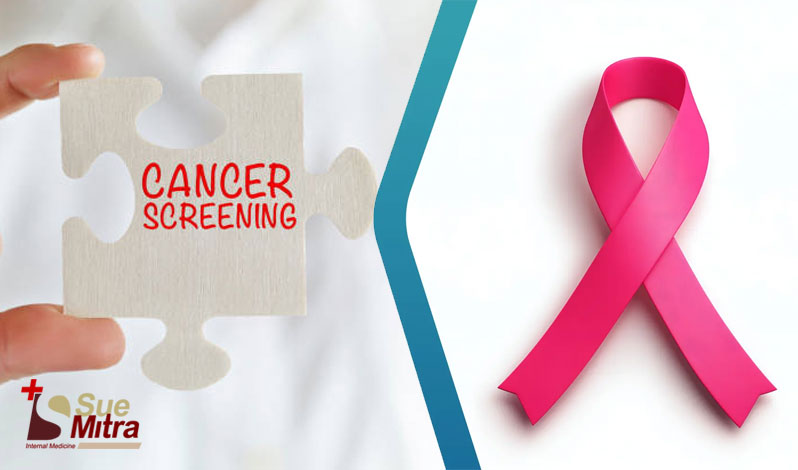
13, Feb 2025
Overview:
Cancer remains one of the most significant health threats globally, with millions of people diagnosed every year. While its devastating effects are well-known, the good news is that regular cancer screenings can significantly increase the chances of early detection, improving survival rates and treatment outcomes. In this article, Dr. Sue Mitra, a prominent oncologist, explores the importance of regular cancer screenings and the role they play in proactive healthcare.
Early Detection Saves Lives
The central premise of cancer screening is that early detection can save lives. Cancers, especially in the early stages, often do not present obvious symptoms. By the time symptoms are noticeable, cancer may have already progressed to a more advanced stage, making treatment more difficult and less effective. Regular screenings help detect these cancers before they become symptomatic, allowing for earlier intervention when treatment options are more effective.
Screening Tests and Their Impact
Dr. Mitra explains that there are various screening tests available depending on the type of cancer. Common screenings include mammograms for breast cancer, colonoscopies for colorectal cancer, Pap smears for cervical cancer, and low-dose CT scans for lung cancer, among others. These tests are designed to detect precancerous changes or cancers at their earliest stages when they are most treatable.
Mammograms, for instance, have been proven to reduce the mortality rate for breast cancer, while colonoscopies have been shown to significantly reduce colorectal cancer deaths. Similarly, Pap smears have played a pivotal role in reducing cervical cancer rates by detecting abnormal cells that could lead to cancer. These screenings have saved countless lives by enabling physicians to catch cancers in their infancy, when treatment is more likely to succeed.
Risk Factors and Personalized Screening
Dr. Mitra emphasizes that not all individuals are at the same risk for every type of cancer. Several factors such as age, gender, family history, lifestyle choices, and underlying medical conditions can influence an individual’s risk. For instance, those with a family history of breast cancer may need to begin mammograms earlier or undergo more frequent screenings. People who smoke or have a history of lung disease may benefit from lung cancer screenings. Thus, personalized screening plans tailored to an individual’s risk factors are essential to optimize cancer prevention and early detection.
The Psychological Benefits of Screening
Regular screenings also provide psychological benefits. Knowing that you are actively monitoring your health can reduce anxiety about the unknown. It provides a sense of control, knowing that potential health problems are being identified and managed early on. While the thought of undergoing a screening test may cause some discomfort or anxiety, it is important to remember that the benefits far outweigh the risks of delayed detection.
Breaking the Barriers to Screening
Despite the clear benefits of regular screenings, many people avoid them due to fear, misconceptions, or lack of access to healthcare. Dr. Mitra stresses the importance of education in overcoming these barriers. Public health campaigns, awareness programs, and accessible healthcare services can help encourage more people to take advantage of cancer screenings. It is essential that patients feel comfortable discussing their health with their doctors and take the initiative to schedule regular check-ups and screenings.
Conclusion
In conclusion, regular cancer screenings are a vital part of proactive healthcare. By identifying cancers early, these tests offer the best chance for successful treatment and improved outcomes. Dr. Sue Mitra underscores the importance of a personalized approach to screening, considering each individual’s unique risk factors. With education, support, and accessible healthcare, more lives can be saved through regular screenings, making cancer a more manageable and treatable disease.
Dr. Sue Mitra and her staff strive to offer their patients the best care, advice and services available in the medical field with the goal to keep patient healthy & happy.

Dr. Sue Mitra is board certified in international medicine. She is seen here with a Cologuard, which is a noninvasive colon cancer screening test. (Photo by: Tim Shortt/Florida Today)